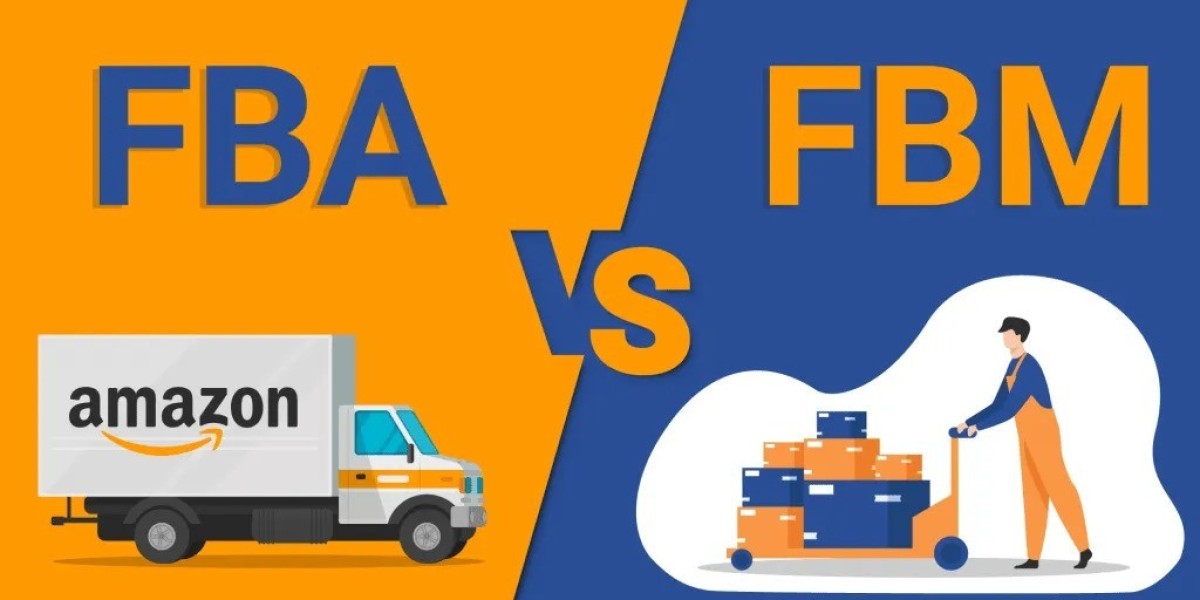As an Amazon seller, one of the most important decisions you'll make is choosing the right fulfillment method for your products. Amazon offers two main options: Fulfillment by Amazon (FBA) and Fulfillment by Merchant (FBM). Both come with their own sets of benefits and drawbacks, depending on your business model, product type, and operational capabilities. In this article, we'll explore the advantages and disadvantages of using FBM over FBA and how these choices impact your overall amazon listing optimization, marketing strategy, and business growth.
Understanding Fulfillment by Merchant (FBM)
Fulfillment by Merchant (FBM) allows Amazon sellers to manage the entire fulfillment process independently. This means that the seller is responsible for storing, packing, and shipping the product directly to the customer. While it offers more control, FBM also requires a well-organized logistical setup, making it ideal for sellers with established infrastructure.
Understanding Fulfillment by Amazon (FBA)
Fulfillment by Amazon (FBA), on the other hand, transfers most of the fulfillment responsibilities to Amazon. Sellers send their inventory to Amazon's fulfillment centers, where Amazon takes care of warehousing, packaging, and shipping the products. FBA also handles customer service, returns, and offers sellers access to benefits like Prime eligibility.
Benefits of Fulfillment by Merchant (FBM)
Greater Control Over Fulfillment Process
One of the key advantages of FBM is having complete control over the entire fulfillment process. Sellers can choose their own packaging, delivery methods, and shipping carriers. This flexibility allows sellers to build a customized fulfillment strategy that aligns with their business model.
This level of control is particularly beneficial for sellers who have specific needs or those working with fragile, bulky, or customized products. FBM can also work well for sellers looking to enhance their brand’s identity through unique packaging, which can be a key part of an amazon marketing agency strategy for building brand recognition.
Reduced Fulfillment Costs
While FBA offers convenience, it comes with additional fees, including warehousing, fulfillment, and long-term storage fees. With FBM, sellers can minimize these costs by using their own storage facilities and choosing cost-effective shipping options. For smaller or low-margin products, FBM can be a more economical choice, helping sellers retain higher profit margins.
Better for Unique or Limited-Quantity Products
Sellers who offer limited-edition products or products that have a small inventory may find FBM to be a better option. Since you have complete control over inventory management, there's less risk of incurring storage fees or losing product quality during extended storage periods. FBM is particularly advantageous when selling niche products that require specialized handling.
For sellers working with an amazon listing optimization agency, FBM allows for greater flexibility in managing inventory levels, ensuring that product listings are always accurate and up-to-date.
Drawbacks of Fulfillment by Merchant (FBM)
Lack of Amazon Prime Eligibility
One of the biggest drawbacks of FBM is that sellers who use this fulfillment method are not automatically eligible for Amazon Prime, which can significantly reduce visibility and sales. Amazon Prime members are more likely to purchase products with free two-day shipping, which is a benefit that comes with FBA. Without the Prime badge, FBM sellers might struggle to compete with Prime-eligible listings.
If maximizing visibility and sales are your goals, working with an Amazon optimization agency to assess the benefits of switching to FBA might be a wise move. However, FBM sellers can still apply for the Seller Fulfilled Prime (SFP) program, but this requires meeting strict shipping requirements.
Increased Operational Burden
Running FBM requires a robust logistical operation. Sellers must manage storage, packaging, shipping, customer service, and returns independently, which can become overwhelming, especially as your business grows. The operational burden is significantly higher compared to FBA, where Amazon handles these aspects for you.
For smaller businesses or those without established logistics systems, the additional responsibilities can be a drawback. It's essential to weigh the costs and labor involved when deciding between FBM and FBA.
Slower Shipping Times
FBM sellers may not be able to compete with Amazon's fast and efficient shipping network. While you can choose your own shipping methods, matching Amazon's two-day delivery can be difficult without significantly increasing your shipping costs. Slower shipping times can lead to a lower customer satisfaction rate and potentially lower sales.
Customer Service and Returns Management
With FBM, the responsibility of customer service and returns management lies entirely with the seller. This can be time-consuming, especially if your products have high return rates or require complex support. FBA, by contrast, handles customer inquiries and returns on your behalf, freeing up time for sellers to focus on other aspects of their business, such as marketing and inventory management.
Benefits of Fulfillment by Amazon (FBA)
Amazon Prime Eligibility
One of the biggest advantages of using FBA is that your products automatically become eligible for Amazon Prime. This badge boosts product visibility and trust, as Prime members are more likely to purchase products that offer fast, free shipping. Prime eligibility can significantly increase sales and improve your product rankings on Amazon.
Scalability
FBA allows sellers to scale their businesses without worrying about warehousing, shipping, or customer service. Amazon’s vast logistics network takes care of all fulfillment-related tasks, allowing sellers to focus on growing their product range and marketing strategies.
Superior Customer Service and Returns Handling
Amazon takes care of all customer service and returns for FBA sellers, which is a huge relief for those who don’t have the resources to manage these tasks themselves. Amazon’s efficient customer service helps maintain a positive customer experience, which can lead to better reviews and repeat business.
Faster Shipping Times
FBA ensures fast, reliable shipping through Amazon’s vast network of fulfillment centers. Products can be delivered in as little as two days, which improves customer satisfaction and increases the chances of securing sales. Faster shipping times are a key advantage in the competitive Amazon marketplace, where customers expect quick delivery.
Drawbacks of Fulfillment by Amazon (FBA)
Higher Costs
FBA comes with a variety of fees, including fulfillment, storage, and long-term storage fees. For sellers with low-margin products or those with large, bulky items, these fees can cut into profits. Additionally, if inventory doesn’t sell quickly, sellers can end up paying high storage fees.
For sellers who prioritize cost-efficiency, partnering with an amazon optimization agency can help evaluate the profitability of using FBA versus FBM.
Limited Branding and Packaging Control
With FBA, Amazon handles the packaging and shipping process, which limits your control over how your brand is presented to the customer. Sellers looking to create a unique customer experience through custom packaging and inserts might find this lack of control a disadvantage.
Conclusion
The decision between FBM and FBA depends on your business model, product type, and long-term goals. FBM provides more control over fulfillment and can reduce costs, but it also places more operational burden on the seller. On the other hand, FBA offers scalability, Prime eligibility, and superior customer service, but at a higher cost.
For sellers looking to balance costs with visibility and customer satisfaction, a hybrid approach may be the best solution. Consulting with an Amazon listing optimization agency or Amazon marketing agency can help you determine which fulfillment method aligns best with your business objectives.


